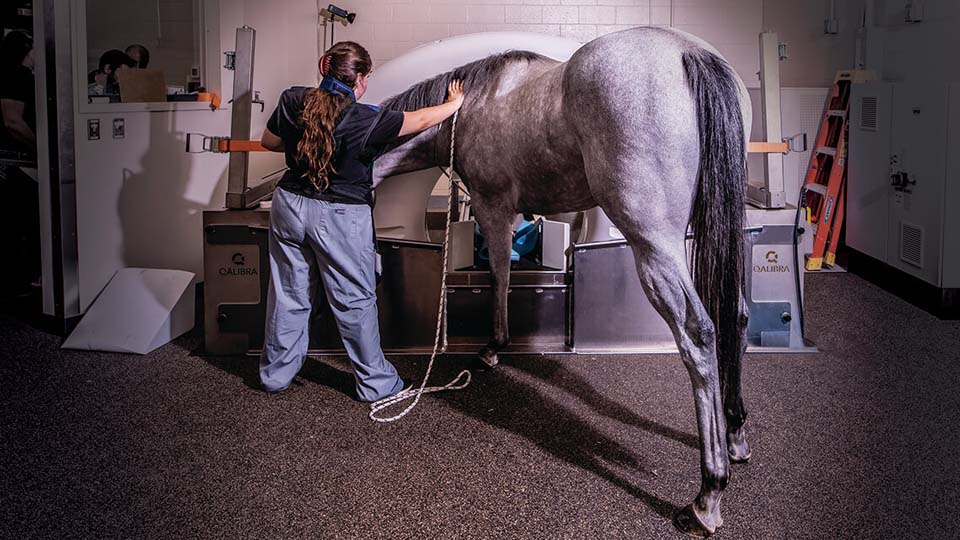Purdue Equine Hospital to Install Large Gantry CT Machine
Subscriber Benefit
As a subscriber you can listen to articles at work, in the car, or while you work out. Subscribe Now
The Caesars Entertainment Equine Specialty Hospital in Shelbyville, a satellite facility of Purdue University’s College of Veterinary Medicine, is installing a specialized CT machine capable of scanning large anatomies. Purdue says the hospital will be one of the first in the country to utilize the large gantry helical CT scanning machine.
The university says the machine, which is manufactured in Germany with Qualibra and Canon Medical, is capable of scanning large animals and is better suited for the behavior of horses.
“The installation of the Qalibra CT puts Caesars Entertainment Equine Specialty Hospital at the very forefront of a select group of practitioners globally who will be rewriting certain chapters of what we think we know,” said Dr. Timm Gudehus, the hospital’s senior equine surgeon. “That goes for the entire community of equine veterinarians. Anatomy that previously was only glimpsed by an ultrasound or X-ray can now be scanned and visualized in 3D. This is the future.”
In the past, veterinarians working with large animals used CTs designed for humans and were limited by the size of the gantry, which is the ring into which the patient is placed. Purdue says the Qalibra CT is built with a gantry opening about 20 centimeters larger than non-equine scanners.
“There are still limitations depending on the size and proportions of the patient, but with this new CT, we can perform scans on the head and neck of a standing horse as well as its limbs above the carpus and tarsus,” Gudehus said. “The positioning is similar to what a horse experiences at the farrier, so it’s a very comfortable and accommodating stance that can be achieved without placing the horse in any constraints.”
Purdue says the Qalibra CT has the ability to scan regions of the body without the use of anesthesia. Radiologists are then able to take high resolution images of body areas such as the chest, knees and hips. It also provides more advanced diagnostic capabilities for medical staff treating equine athletes.
The Qalibra CT system will also be installed in the new David and Bonnie Brunner Equine Hospital, which is expected to open this spring on Purdue’s West Lafayette campus. Purdue says its College of Veterinary Medicine will have two of the three known Qalibra CT installations in the United States.
